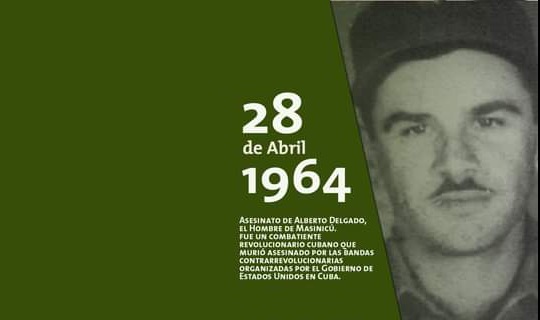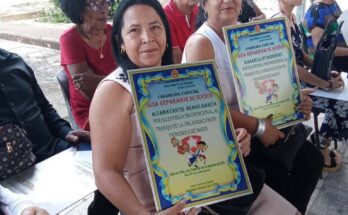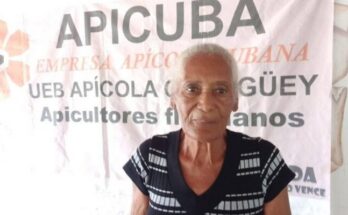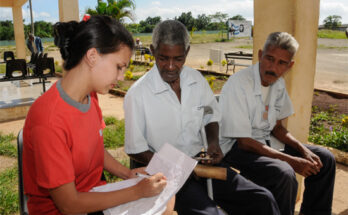On April 28, 1964, Alberto Delgado Delgado, also known as El Hombre de Maisinicú (The Man of Maisinicú), Cuban revolutionary combatant who offered his life in a silent struggle against the bands of rebels operating in the Escambray, encouraged by the United States in Cuba, was assassinated.
Born in the vicinity of Trinidad, on December 10, 1932, he collaborated with the 26th of July Movement; at the end of 1958 he joined the 11th Cándido González column of the Rebel Army and fought shoulder to shoulder with dispossessed youths, followers of the ideas of freedom that Fidel Castro had proclaimed in the year of José Martí’s centenary, with the assault on the Moncada and in his plea History Will Absolve Me.
Recognized as a brave soldier, upon the triumph of the Revolution he was assigned to a military unit in Chambas, former province of Camagüey, where he remained until 1960; a year later, while he was being discharged from the Revolutionary Armed Forces for health reasons, he learned of the subversive activities of several individuals and decided to inform the authorities, which marked the beginning of a new stage in his life as a revolutionary.
Alberto Delgado Delgado had the dangerous and patriotic task of infiltrating among the bands of counterrevolutionaries in the Escambray Mountains, as a mission granted by the Cuban State Security; he was located in 1963, in the Masinicú farm, near Trinidad, where he maintained the facade of administrator, disaffected to the Revolution and willing to collaborate with the banditry in everything in his hands.
His work in the ranks of the enemy allowed to frustrate several plans of the counterrevolutionary bands that operated in the northern area of the province of Camagüey, but, his intrepidity led to arouse suspicions in some notorious ringleaders, so that on April 28, 1964, and with only 32 years of age, he was brutally assassinated.
Judging by the wounds, visible to the naked eye, he had been subjected to a brutal beating; the corpse showed a caved-in skull, fractures in both legs, an arm and a collarbone, stab wounds in the groin and abrasions all over his body; for security reasons he was buried as if he were a counterrevolutionary.
Three years later his remains were exhumed, he was given the honors corresponding to a military man fallen in the line of duty and was posthumously promoted to the rank of lieutenant of the Ministry of the Interior and buried in the Pantheon of the Revolutionary Armed Forces, in the Colon Cemetery.





